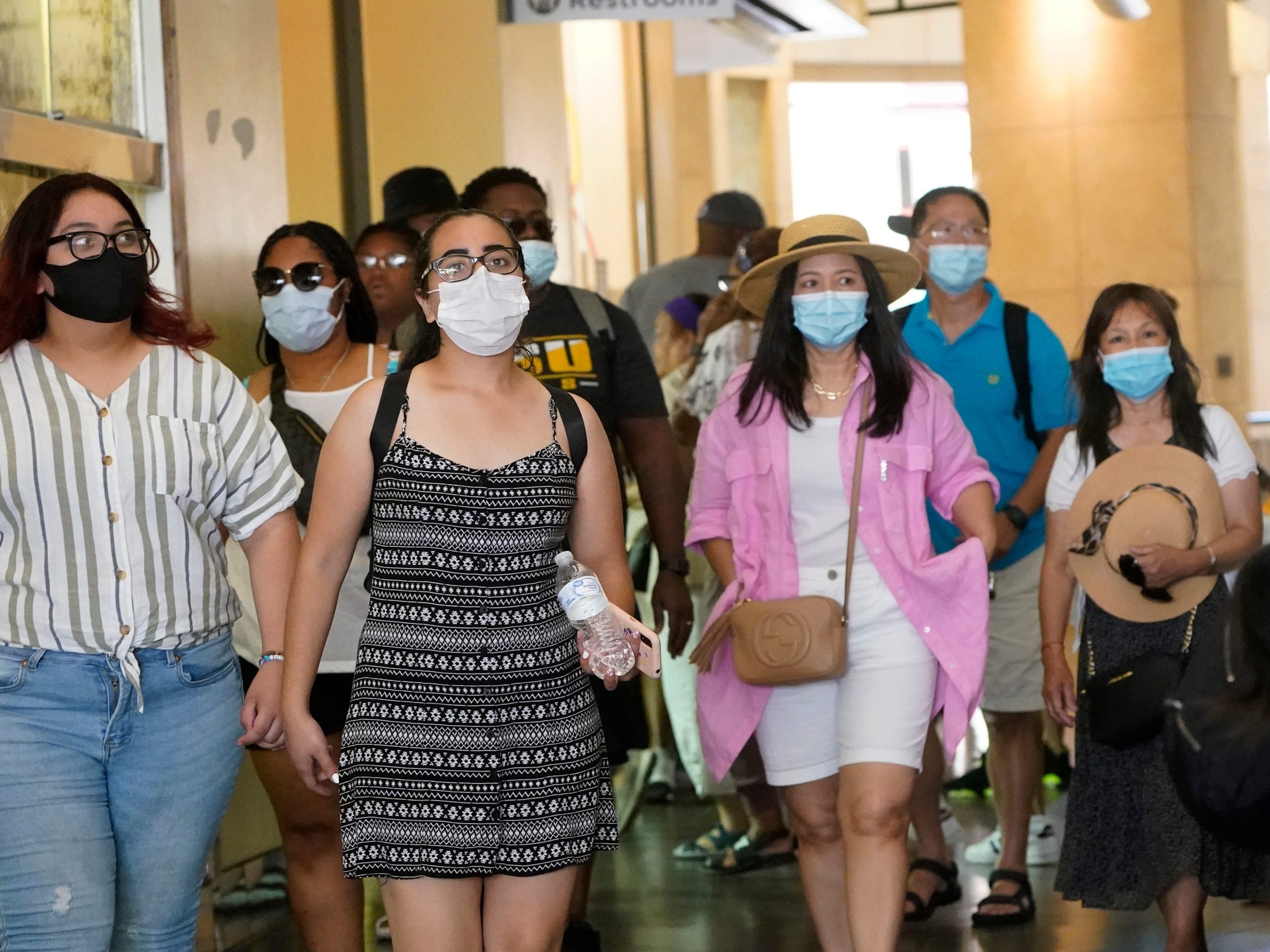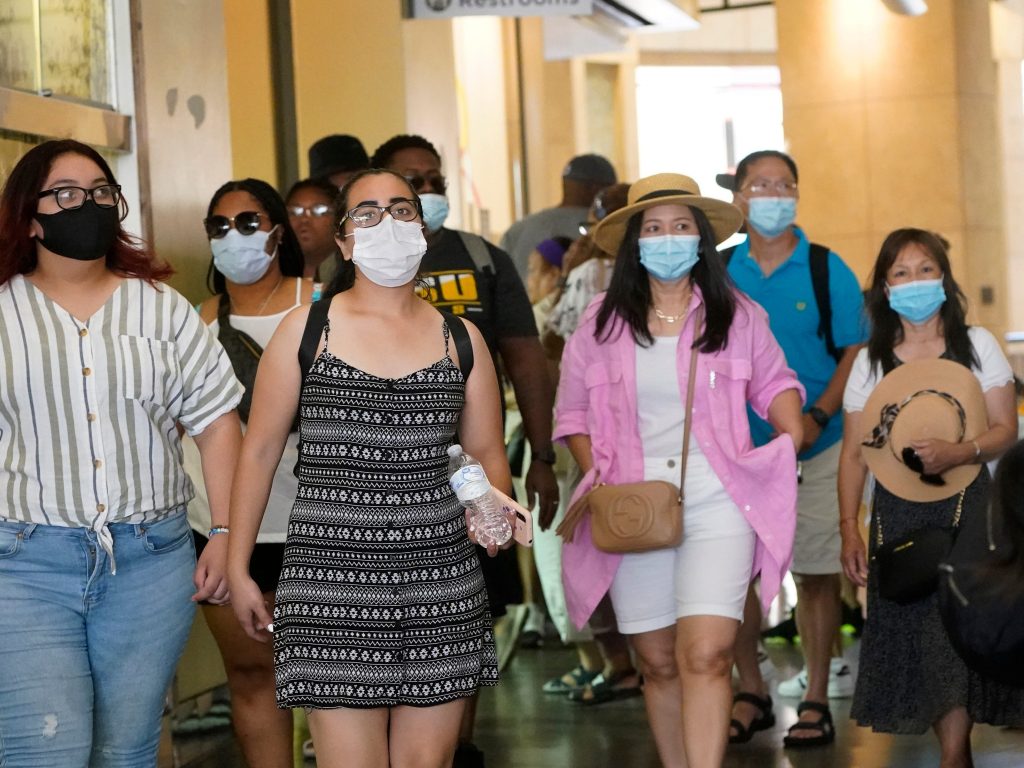Hello,
Welcome to Insider Healthcare. I'm Lydia Ramsey Pflanzer, and this week in healthcare news:
- We reckoned with the spike in COVID-19 cases in the US, and what it means for masking and booster shots;
- Why upstarts offering mental-health treatments are shunning insurance coverage;
- Find out who's advising some of the hottest digital health startups.
If you're new to this newsletter, sign up here. Tips, comments? Email me at [email protected] or tweet @lydiaramsey125. Let's get to it…

AP Photo/Marcio Jose Sanchez, File
Pfizer's shots have waning protection
In a major change this week, the CDC recommended that people wear masks indoors regardless of their vaccination status, in areas where the coronavirus is spreading rapidly.
It's a big departure from two months ago, when the CDC said masks were no longer necessary for fully vaccinated people.
Driving the new guidelines: A spike in coronavirus cases and new information about how vaccinated people can spread the Delta variant. "The war has changed," CDC officials warned in a presentation obtained by The Washington Post.
The headlines about mask guidelines and rising case counts makes me think of this piece we put out in February titled: "The coronavirus is going to stick around forever. Get ready for the new normal."
We're starting to get a picture of how long protection will stick around with current vaccines as well.
Pfizer said on Wednesday that protection from mild illness starts to wane around six months.
The finding adds to the company's push to offer booster shots.
Here's what Pfizer found>>
Pfizer doubles down on the case for COVID-19 vaccine booster shots

Reaching more people through virtual care
A push from the US government to get faster internet to more households could have a big impact on telehealth's future.
That's because experts expect that more internet access could mean more access to virtual care, Mohana Ravindranath reports.
That in turn could lead to better access to medical care.
Increasing access through virtual care is something a group of upstarts is after too, Shelby Livingston reports.
They're shunning insurance and charging as much as $100 a visit for mental-health treatments, such as therapy or medication management.
Critics worry the approach could leave out vulnerable people.
Check it out>>
A crop of startups is charging up to $100 a visit for mental-health treatment, and they're betting it's the future of healthcare

From left to right: Michael Esquivel, Julie Yoo, and Stephanie Davis
Fenwick & West; Andreessen Horowitz; SVB Leerink; Marianne Ayala/Insider

Fenwick & West; Andreessen Horowitz; SVB Leerink; Marianne Ayala/Insider
9 people every startup founder should know
Over the summer, the team has had some time to sink into bigger projects and lists.
This week, we put out two new lists.
The first: Andrew rounded up the 12 biotechs pioneering cutting-edge cures that stand to upend how we treat diseases and transform pharma.
Meanwhile, Megan Hernbroth and Mohana Ravindranath pulled together a new exclusive list for the team.
We often think about the startups people expect to take off, or the rising stars of venture capital.
But there are often a bunch of other professionals who tend to go unnoticed but can be critical to a startup's success.
We identified 9 such folks.
Get the exclusive list>>
The 9 behind-the-scenes players who can make or break a digital-health startup
I'll leave you with some pitch decks we got our hands on this week:
- Here's the presentation Deep Genomics used to raise $180 million in a round led by SoftBank.
- See the pitch deck a doctor used to sell F-Prime on his vision for an entirely new way of testing experimental drugs.
Interested in more pitch decks? You can find all of the ones the healthcare team has published over the years here>>
- Lydia
